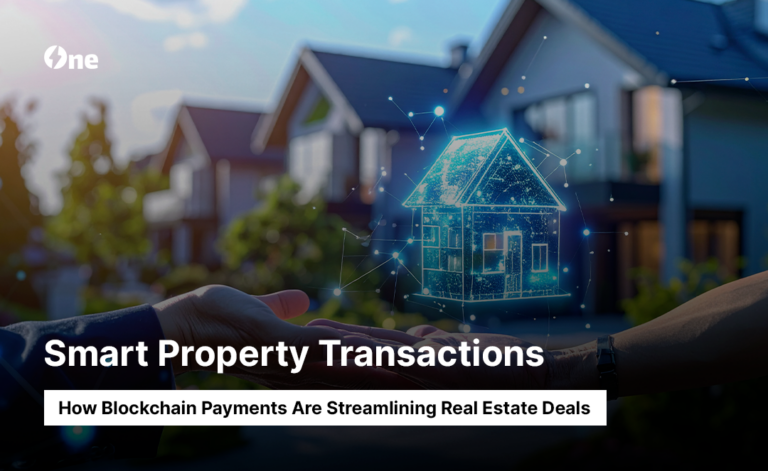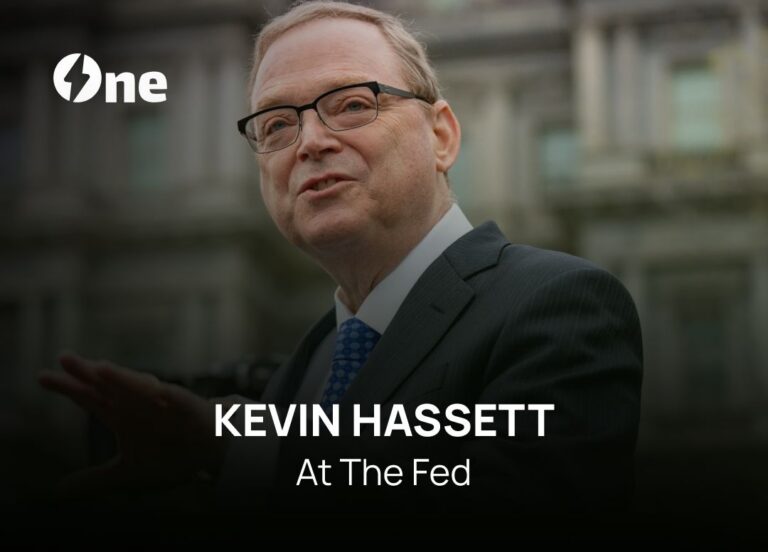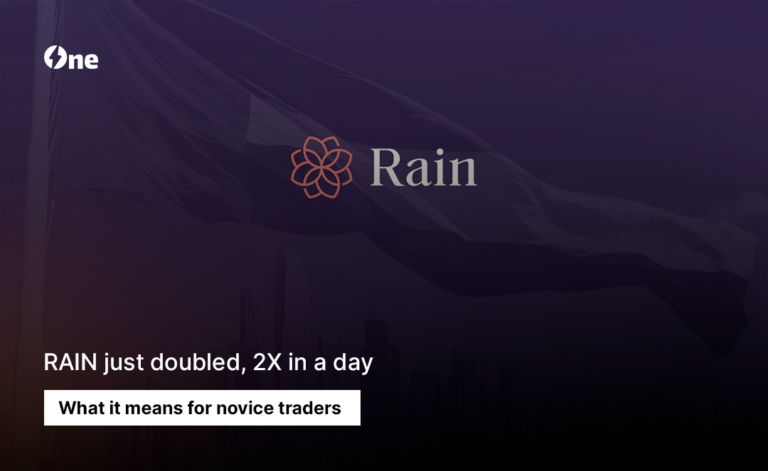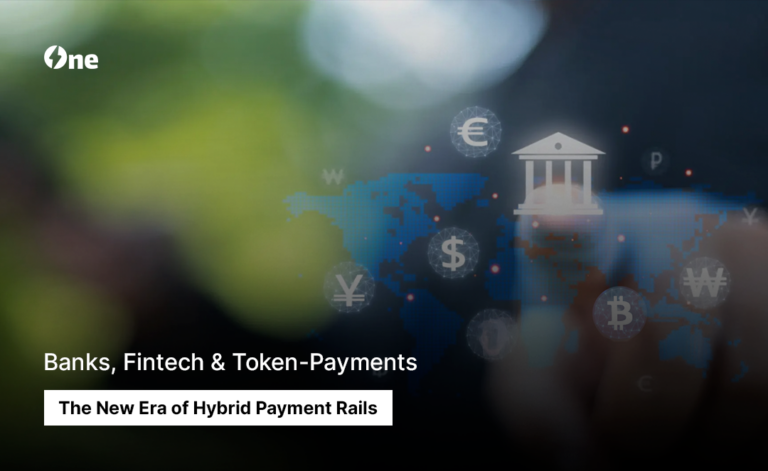October 18, 2025
Smart Property Transactions: How Blockchain Payments Are Streamlining Real Estate Deals
See how blockchain payments are transforming real estate transactions — enabling instant, low-cost, and cross-border property deals. Learn more with AIO.

Real estate has always been a high-value, slow-moving industry where paperwork, intermediaries, and banking processes often turn a deal into a multi-week ordeal.
In 2025, that’s changing.
Thanks to blockchain payment technology, property transactions that once took days or weeks to settle can now be completed in minutes.
For developers, brokers, and cross-border investors, this isn’t just a technological upgrade, it’s a financial and operational breakthrough.
1. The Real Estate Bottleneck: Time, Fees, and Friction
Traditional property payments face three persistent pain points:
- Slow Settlement Cycles: Bank wires take 3-7 business days, especially for international transfers.
- High Transaction Costs: Currency conversion, SWIFT, and intermediary fees can reach 2-4% per deal.
- Operational Complexity: Legal, escrow, and payment confirmations require multiple intermediaries.
For cross-border deals, the inefficiency compounds especially when financing or international investors are involved.
That’s where blockchain-powered payments are stepping in to change the rules.
2. The Blockchain Advantage in Real Estate
Blockchain enables direct, peer-to-peer transactions between buyers, sellers, and intermediaries without banks or clearing delays.
Key Benefits:
- Instant Settlements: Funds can move across borders in seconds, not days.
- Minimal Fees: Average transaction costs drop from 2-4% to 0.3-0.5%.
- Immutable Records: Payment proofs are timestamped on-chain for full auditability.
- No FX Delays: Stablecoin payments (like USDT or USDC) eliminate currency conversion risk.
For real estate developers managing multiple units or international projects, this means faster cash cycles and stronger liquidity.
The AIO platform allows developers to accept and settle stablecoin payments globally, securely, instantly, and without third-party delays.
3. Cross-Border Property Deals Made Simple
Buying property across borders is traditionally a bureaucratic marathon.
Banking systems require extensive documentation, long settlement windows, and limited currency options.
Blockchain payments, however, remove nearly all of that friction.
Example Scenario:
- A Dubai developer sells a $400,000 apartment to a client in Singapore.
- Traditional method: 5 business days for SWIFT clearance + $8,000 in combined fees.
- Blockchain method: 60-second stablecoin transaction at $1,200 total cost.
That’s a 7x cost reduction and a settlement speedup from days to minutes.
4. Tokenized Real Estate: The Next Evolution
Beyond payments, blockchain is enabling fractional property ownership through tokenization.
Developers can issue blockchain tokens representing shares of real assets, letting investors buy, sell, or trade property stakes digitally, similar to equities.
Why It Matters
- Opens global property markets to smaller investors
- Improves liquidity for traditionally illiquid assets
- Automates revenue distribution (rental yield or profit share) via smart contracts
By combining tokenized assets with blockchain payments, real estate becomes a fully digital investment class.
5. Real Estate Platforms Adopting Blockchain Payments
The world’s most forward-looking real estate ecosystems are already integrating blockchain rails:
- Propy (US): Closed its first blockchain home sale in 2024 using stablecoin payments.
- PropertyCoin (EU): Tokenized over €100M worth of commercial property.
- Asia-Pacific Developers: Using USDT settlements to attract overseas buyers and simplify closing processes.
With AIO’s multi-chain architecture, developers can integrate blockchain payments directly into property listing sites or CRM systems, enabling instant, borderless transactions.
6. Instant Escrow and Smart Contract Settlements
One of blockchain’s most powerful features in real estate is automated escrow.
Smart contracts can hold funds until legal or contractual conditions are met then releasing them automatically once verified.
This removes reliance on third-party escrow agents, reducing cost and risk.
It also speeds up title transfers and closing by synchronizing payment and contract execution in real time.
7. Simplified Integration for Developers and Agents
You don’t need a blockchain engineer to start.
AIO provides:
- Simple API and plugin-based integration for property listing or CRM platforms
- Instant payment tracking via dashboard analytics
- Support for multiple stablecoins (USDT, USDC, EUROC, and others)
From real estate agents to enterprise developers, the process is designed to be plug-and-play.
8. The Executive Takeaway
In an industry where trust and timing define success, blockchain payments are becoming a decisive edge.
Faster settlements, lower fees, and global accessibility are rewriting how developers, agents, and investors move money in real estate.
Property transactions no longer need to wait for banks.
Discover how AIO helps real estate professionals close deals faster across borders, currencies, and time zones. Let us help you grow your business.



